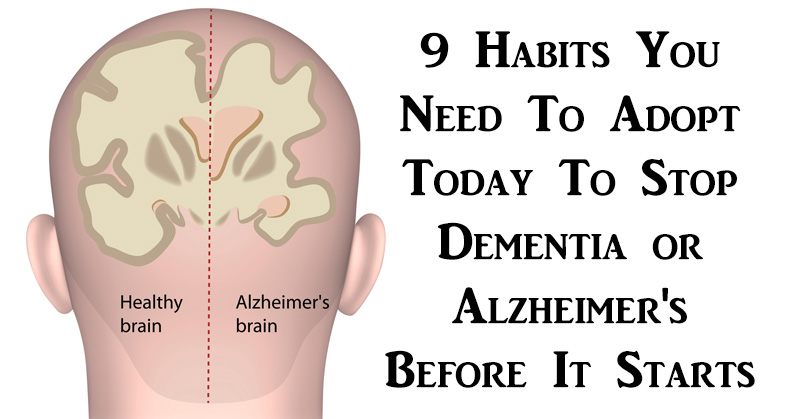Dementia is a condition that includes multiple cognitive issues such as memory loss. It comes in various forms including vascular dementia, Parkinson’s disease, and Huntington’s disease.
Alzheimer’s disease occurs in 60-80% of all cases. Dementia gets worse if the root cause is not treated. Apathy, depression, and memory loss are some of the most common symptoms.
We give you some of the risk factors that can be controlled/treated:
- Head injuries
- Impaired thyroid function
- Insufficient physical activity
- Malnutrition/Vitamin deficiencies
- Medication that worsens the condition
- High cholesterol, hypertension, diabetes, and other cardiovascular issues
- Alcoholism
- Smoking
9 ways to reduce the risk of dementia
- Stop smoking
Smoking damages every part of your body, including your brain. Studies have shown that smokers have a 45% higher risk of Alzheimer’s disease when compared to non- or ex-smokers. So, you better keep that cigarette away from you.
- Be more active
Stimulate your blood flow and get your heart pumping. Exercise for at least half an hour every day to prevent chronic issues.
- Boost your vitamin B intake
B vitamins reduce homocysteine or HC levels. This molecule damages the vascular system, and increases the risk of stroke, heart disease, and other vascular issues. Increase your vitamin B intake to prevent any age-related cognitive issues.
- Boost your vitamin D intake
There is a strong link between vitamin D deficiency and cognitive issues/dementia. Consider using supplements to prevent any further damage to your brain.
Spend more time in the sun and use high-quality supplements, especially in cold winter months.
- Brain challenge
Bilinguals have lower risk of developing dementia unlike individuals who only speak one language. Challenge your brain, and delay the onset of memory loss.
- Protect your head
Always wear a helmet when riding a bike or walking on ice. Protect your head, and prevent injuries.
- Alcohol isn’t your friend
Drinking too much alcohol increases your risk of dementia, so try to control your “urge.”
- Numbers matter
Always keep a track on your weight, blood pressure, and cholesterol. Pay more attention to your cardiovascular and metabolic health.
- Socialize
Walk with your best friend or call someone. Isolating yourself is not the best thing you can do. Spend more time with your friends and family, your brain needs company.
Learn something new, and get your brain busy. Your mental health matters!
Source: www.davidwolfe.com
